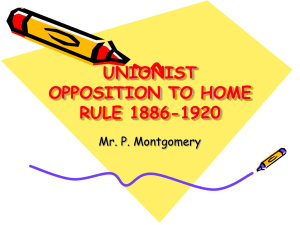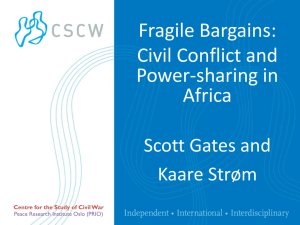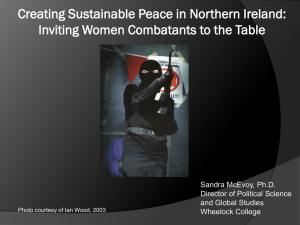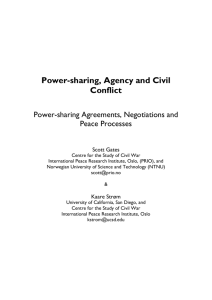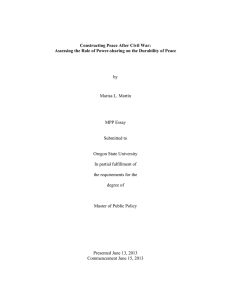GCruiseWhat-was-the-importance-of-the
advertisement
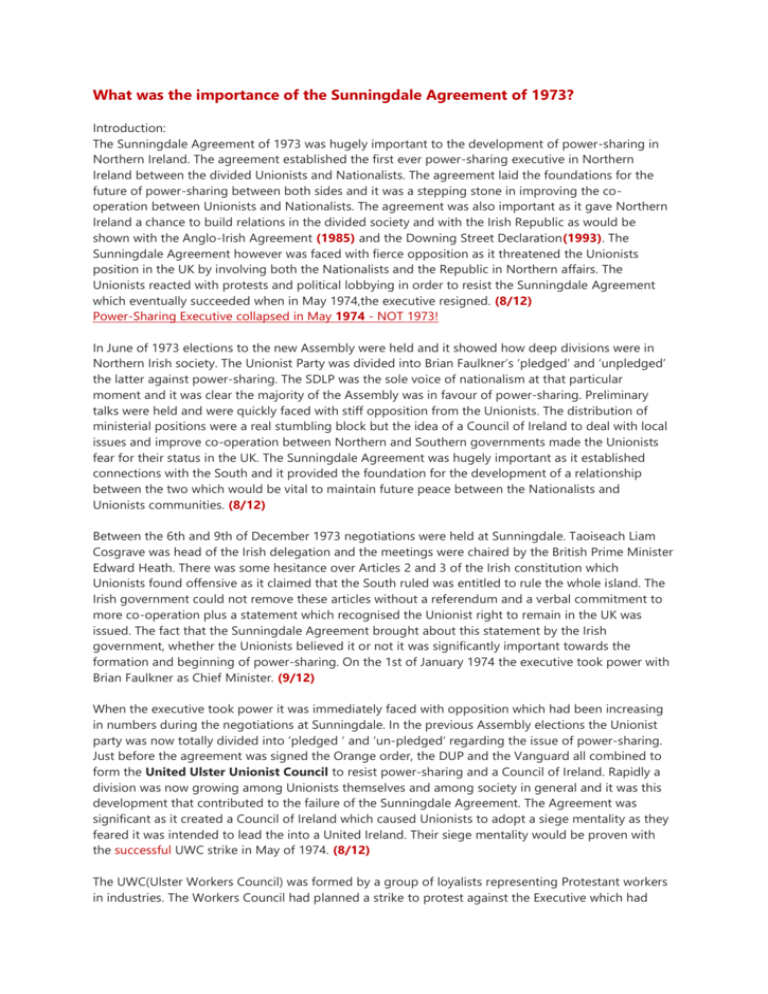
What was the importance of the Sunningdale Agreement of 1973? Introduction: The Sunningdale Agreement of 1973 was hugely important to the development of power-sharing in Northern Ireland. The agreement established the first ever power-sharing executive in Northern Ireland between the divided Unionists and Nationalists. The agreement laid the foundations for the future of power-sharing between both sides and it was a stepping stone in improving the cooperation between Unionists and Nationalists. The agreement was also important as it gave Northern Ireland a chance to build relations in the divided society and with the Irish Republic as would be shown with the Anglo-Irish Agreement (1985) and the Downing Street Declaration(1993). The Sunningdale Agreement however was faced with fierce opposition as it threatened the Unionists position in the UK by involving both the Nationalists and the Republic in Northern affairs. The Unionists reacted with protests and political lobbying in order to resist the Sunningdale Agreement which eventually succeeded when in May 1974,the executive resigned. (8/12) Power-Sharing Executive collapsed in May 1974 - NOT 1973! In June of 1973 elections to the new Assembly were held and it showed how deep divisions were in Northern Irish society. The Unionist Party was divided into Brian Faulkner’s ‘pledged’ and ‘unpledged’ the latter against power-sharing. The SDLP was the sole voice of nationalism at that particular moment and it was clear the majority of the Assembly was in favour of power-sharing. Preliminary talks were held and were quickly faced with stiff opposition from the Unionists. The distribution of ministerial positions were a real stumbling block but the idea of a Council of Ireland to deal with local issues and improve co-operation between Northern and Southern governments made the Unionists fear for their status in the UK. The Sunningdale Agreement was hugely important as it established connections with the South and it provided the foundation for the development of a relationship between the two which would be vital to maintain future peace between the Nationalists and Unionists communities. (8/12) Between the 6th and 9th of December 1973 negotiations were held at Sunningdale. Taoiseach Liam Cosgrave was head of the Irish delegation and the meetings were chaired by the British Prime Minister Edward Heath. There was some hesitance over Articles 2 and 3 of the Irish constitution which Unionists found offensive as it claimed that the South ruled was entitled to rule the whole island. The Irish government could not remove these articles without a referendum and a verbal commitment to more co-operation plus a statement which recognised the Unionist right to remain in the UK was issued. The fact that the Sunningdale Agreement brought about this statement by the Irish government, whether the Unionists believed it or not it was significantly important towards the formation and beginning of power-sharing. On the 1st of January 1974 the executive took power with Brian Faulkner as Chief Minister. (9/12) When the executive took power it was immediately faced with opposition which had been increasing in numbers during the negotiations at Sunningdale. In the previous Assembly elections the Unionist party was now totally divided into ‘pledged ‘ and ‘un-pledged’ regarding the issue of power-sharing. Just before the agreement was signed the Orange order, the DUP and the Vanguard all combined to form the United Ulster Unionist Council to resist power-sharing and a Council of Ireland. Rapidly a division was now growing among Unionists themselves and among society in general and it was this development that contributed to the failure of the Sunningdale Agreement. The Agreement was significant as it created a Council of Ireland which caused Unionists to adopt a siege mentality as they feared it was intended to lead the into a United Ireland. Their siege mentality would be proven with the successful UWC strike in May of 1974. (8/12) The UWC(Ulster Workers Council) was formed by a group of loyalists representing Protestant workers in industries. The Workers Council had planned a strike to protest against the Executive which had started to introduce reforms towards discrimination in employment. Loyalist paramilitaries then became involved as they saw this protest as an ideal opportunity to increase the support for their objection against power-sharing. The paramilitary members blocked roads, encouraged people not to go to work and shut off power forcing schools, hospitals and services to close. The Executive was now in a state of chaos and the importance of the provisions of the Sunningdale Agreement were completely undermined. Merlyn Ree’s un-willingness to use the police or army to stop the strike showed that the Executive was not in control of the State itself and in May 1974 the Executive resigned. (8/12) The Sunningdale Agreement of 1973 would prove to be hugely important as it was the first agreement of its kind between Northern and Southern Ireland. (***1) It washugely significant as it established connections between the two and it provided a foundation on which to build a co-operative relationship which would be vital for the future viability of Northern Ireland. The Agreement although it did fail, created the first power-sharing Executive between Unionists and Nationalists which was hugely important in healing the deep divisions of the Northern State. It provided a ground on which to build and maintain this relationship which created a precedent for future power-sharing. The Sunningdale Agreement was the most important agreement of it’s time as it established links with the Republic creating a relationship that would work towards establishing peace in a divided society. Without the Sunningdale Agreement the foundation on which to sign the Anglo-Irish Agreement and the Downing Street Declaration would have been non-existent. (9/12) CM = 8+8+9+8+8+9= 50/60 OE = 29/40 Overall = 79/100 This is an excellently-worded essay. Really good observations, commentary and analysis. Outstanding conclusion and most paragraphs are VERY GOOD. A few points to add/ remember/ alter: 1) Sunningdale Agreement was NOT really an agreement between Northern & Southern Ireland. Primarily, it was an agreement between Unionists & Nationalists on the future governance of Northern Ireland. It involved an 'Irish Dimension' hence The Republic's new links to Northern Ireland. 2) Sean Farren of the SDLP characterised the Agreement as "an agreement too soon". Make sure to include this in your conclusion. 3) William Whitelaw's role and vision for Northern Ireland is SIGNIFICANT in its absence in this essay.As the first Secretary of State for Northern Ireland, he was absolutely central to the twin-track approach of Power-Sharing and an 'Irish Dimension. Discuss his role in a separate paragraph. Finish it by assessing his replacing as having a negative impact on the possibility of success of the Sunningdale Power-Sharing Agreement. KEY PERSONALITIES & KEY CONCEPTS: Always address and explain.
